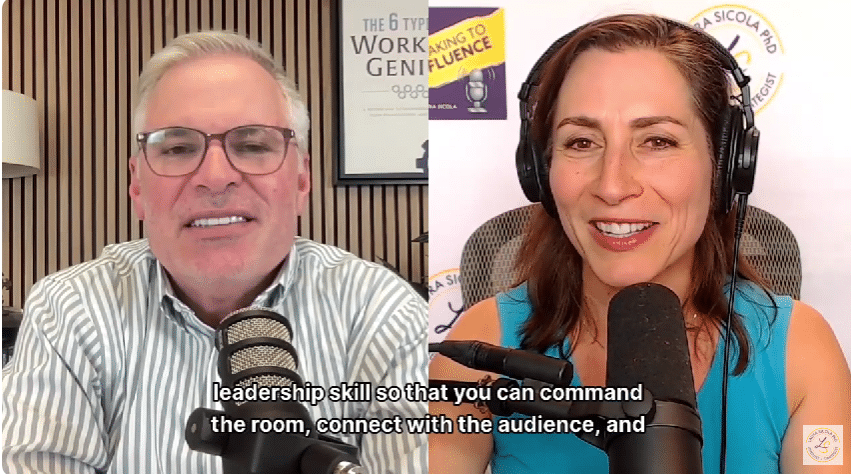Some changes hit us all at once, like a tax bill or layoff. Others sneak up on us, like those extra 5-10 pounds we’re always trying to lose this time of year, or our attitude at work.
It can be disorienting when we love our company, clients, people or industry, to suddenly realize that we’ve been in a rut for a while, dreading what the calendar holds for us for the day.
Sometimes this is due to cultural dysfunction in the team or organization, but sometimes it’s just that our task list has evolved and become overrun (innocently or otherwise) by tasks we really have no business doing.
Fortunately, Patrick Lencioni, author of the iconic ‘The Five Dysfunctions of a Team‘ and more recently ‘The Six Types of Working Genius’, is an expert in both those areas, and addresses them both on this week’s episode of the Speaking to Influence podcast .

If you’ve never had the chance to read The Five Dysfunctions of a Team, you really should. It’s a fast read (or listen), written like a fable, a simple story in which you can see yourself, with easily identified lessons.
It should be no surprise that all five dysfunctions are predicated upon dysfunction #1: Absence of trust. If you don’t trust each other on relevant levels, none of the other dysfunctions can be overcome.
When that’s the case, happiness at work is virtually impossible, and that seeps into every other aspect of life.
So what did Pat and I dive into on the podcast? Trigger phrases to listen for, to identify the difference between (e.g.) when someone’s having a bad day, and when there’s legitimate dysfunction afoot.
And we did this for all five levels of dysfunction.
But what if there’s not active dysfunction, but you still hit the snooze button every morning because for some reason or other, you dread facing the work day?
That’s exactly what was happening to Pat, he realized. And it’s his own company, promoting his books, teaching content he’s passionate about, with people he loves and clients he enjoys working with.
So what the heck was the problem?
The problem, he realized, was that somehow things had evolved so that the majority of the tasks that filled his calendar were tasks he hated, wasn’t good at, or otherwise should never have been responsible for.
That’s when he had an epiphany, and, working with his team, identified the six categories of “Working Genius.” These are the kinds of tasks that you either love or hate doing, regardless of whether or not you’re any good at them.
Sure, we all have items on our to-do list that we’d rather not do, but if they take up too much of our time, there’s no passion in the work anymore.
Learning to identify the areas of strength, competency and challenge for each member of a team is a powerful experience, and helps explain why we may not be performing optimally.
Better yet, the fix could be as simple as swapping a task or two with another person who actually likes and is good at the thing that is the bane of our existence. Then we, in turn, take a responsibility off their plate – ideally one that we like more, and they are happy to get rid of.
At the end of the episode, he also shares the link to take a very fast self-assessment to identify YOUR top “working genius” areas.
I thought it was a really fun assessment, and I confess I was surprised at which were not my top areas… but as I read the explanation of my results, I thought to myself, Oohhhh, that explains a lot!
Then I had the other members of my team take it, and we debriefed our results. That explained a lot too! And as the leader, now I’m trying to be more conscious about matching task delegation to people’s dominant “genius” areas, because I want them not only to be successful at work, I want them to love what they do!
Listen to the full conversation here or watch the video on Youtube here.
Speaking of genius, do you still feel like your genius is NOT coming through whenever you have to deliver your 30-second elevator pitch?
If so, join my upcoming FREE interactive workshop, “Elevator to the Top!” You’ll get to see live pitch coaching and discover the secrets to how to make the listener say, “That’s interesting, tell me more” in just 30 seconds!
That’s a whole different level of “Genius” in my book… don’t miss it!
Don’t forget to rate the Speaking to Influence podcast on https://ratethispodcast.com/influence – thank you!



